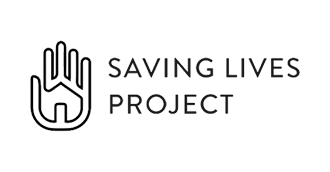Around 46% of Americans know an addict. Learning about the pitfalls of holding a drug intervention will make your loved one more likely to choose treatment over addiction.
About 20.1 million Americans over the age of 12 struggle with drug addiction. Educating yourself on how to hold an intervention can literally save lives.
However, not all interventions go over well. Here are 5 things that could go wrong during an intervention:
1. Intoxication or Withdrawal Symptoms At a Drug Intervention
Due to the nature of addiction, your loved one might show up intoxicated to their drug addiction intervention. You'll have to wait until your loved one is sober in order to execute the intervention.
While under the influence or experiencing withdrawal, your loved one might not remember what you're saying to them. They also might not grasp the gravity of your words. Some people with addiction issues will completely disregard your feelings and opinions while under the influence.
Speaking of disregard:
2. Denial
Denial is a coping mechanism used by many addicts. It's such a common reaction, you'll want to plan ahead for it.
Before you start the intervention, make a list of ways you've seen addiction affect the quality of your loved one's lives and relationships. Be honest about the ways their addiction has hurt you and why being sober is good.
That brings us to the next point:
3. Anger Issues
It's natural to feel anger when someone's addiction affects you. However, anger and judgement will hurt the chance of your loved one going to rehab.
Some family members or friends hold anger over the things the person with addiction has done to them in the past. Lying and stealing are common sources of resentment. If a person can't hold back their anger, picks fights, uses insults, or has emotional outbursts, they shouldn't be involved in the intervention.
Hiring a drug intervention specialist is effective because they're professionally trained to conduct interventions. This means they're better at mediating problems and handling the emotional reactions at interventions.
4. Lack of Planning
A lack of proper planning can easily shoot down your intervention's success. Make sure everyone writes down or otherwise plans what they have to say.
Part of planning what you're going to say involves practicing your words. Plan as much as you can for the intervention. Make sure to recite your words aloud to make saying them feel less awkward.
Drug intervention specialists also help you plan the intervention for best results.
5. Have a Program Ready
If your loved one is receptive to the intervention, they might agree to go to treatment right away. Make a list of potential drug intervention programs your loved one can go to. Then they'll have to make sure their insurance covers the option they choose. If possible, have transportation ready to escort your loved one to the program.
Consider a sober living program afterwards.
Open Up a Path For Healing
Drug overdoses are the leading cause of death for adults under 55. Hold a drug intervention before it's too late.
Rates of drug addiction are rising among people age 55 and up. The harsh reality is drug addiction can affect anyone of any age. An intervention is a meaningful way to show someone you care about them.
Support sobriety and contact A Fresh Start to inquire about sober living. It's the best gift you could ever give.






COMMENTS